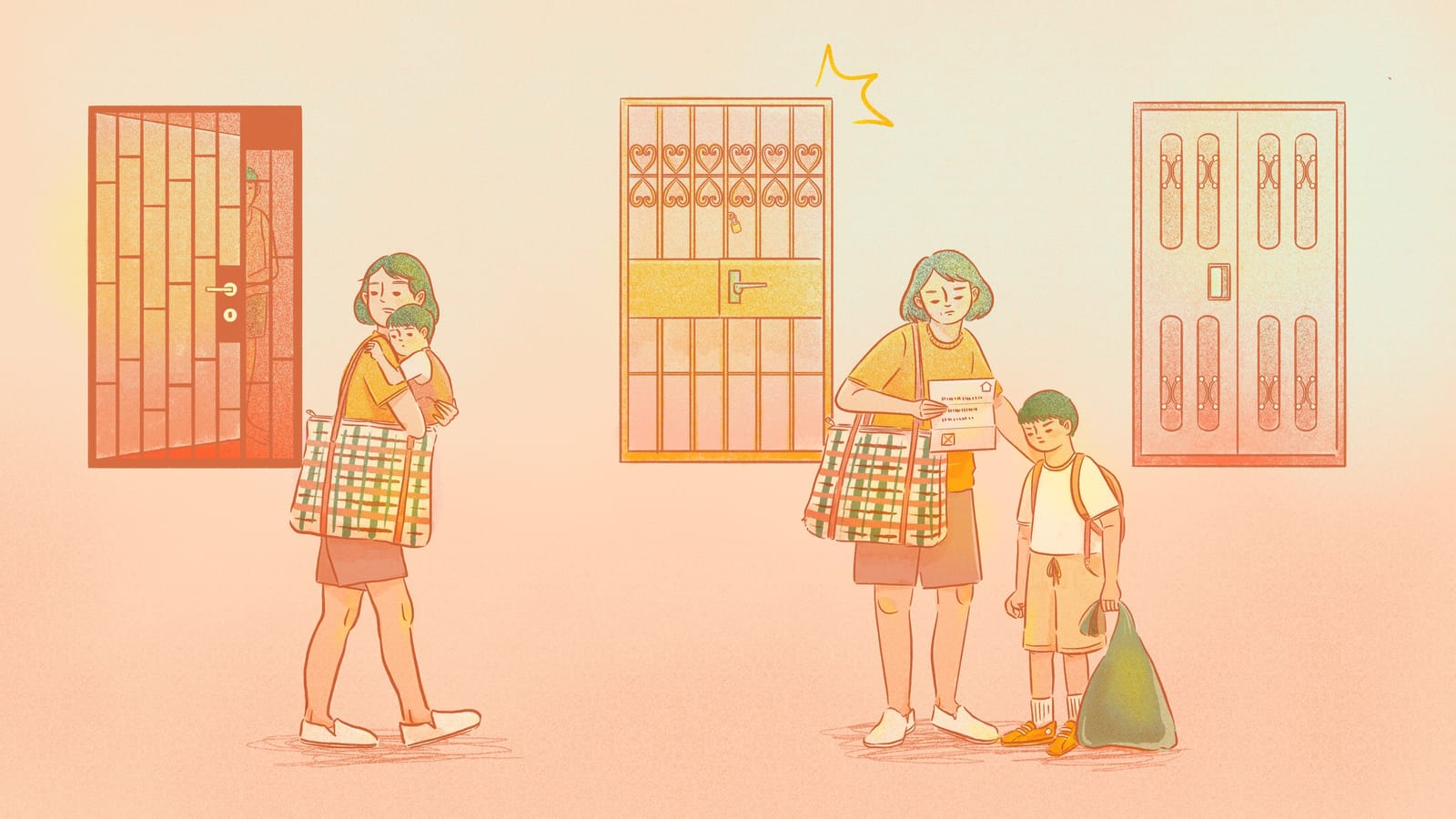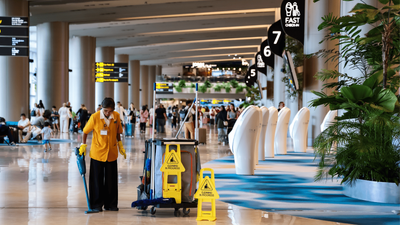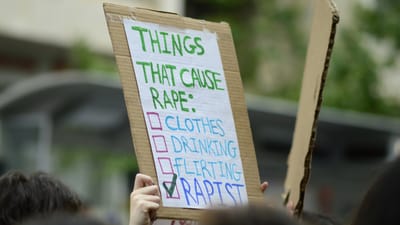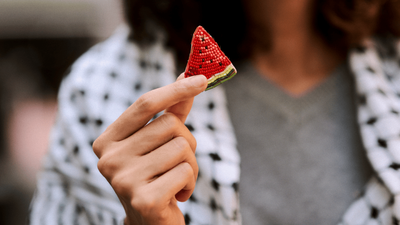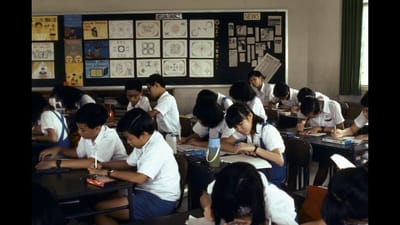On June 1st 2013, Rebecca Loh, a single mother, was alone with her son Gabriel in her mother’s flat along West Coast Road. The nine-year-old was playing a handheld game in the living room when she forcibly carried him to the kitchen. Gabriel managed to break free from her grasp twice but could not do so a third time. Rebecca lifted him onto a narrow ledge outside the kitchen window, where he clung to the bamboo poles that dried their clothes. Gabriel was crying as she dislodged his grip. She knew that the five-storey fall would severely hurt him but did not expect it to be fatal. A neighbour spotted her weeping by the window while her son lay motionless on the ground.
Rebecca was driven to such inconceivable desperation because her days were filled with the demands of caring for a child with special needs. Gabriel, who suffered from osteoporosis and a liver condition, had exorbitant medical expenses. He was malnourished and yellow from jaundice, and Rebecca believed that he would be better off in a children’s home. If the authorities removed him from her care, she would regain the time to earn her keep; they were both financially dependent on her mother, who earned S$800 a month working part-time in a bakery. Rebecca and her mother had a fraught relationship too. Earlier that year, in February, she tried to strangle her mother. Rebecca was admitted to the Institute of Mental Health (IMH), a common occurrence since she was first diagnosed with schizophrenia in 2006. In 2011, she hit her mother for forbidding her from watching a movie, and brought a chopper to a coffee shop because she thought a stranger had mocked her.
By June 2013, Rebecca had stopped taking her medication and was suffering from post-schizophrenic depression. She was often seen walking with her head bowed while buying meals, usually looking troubled or in a daze. This was the story that the media reported: of a mother who believed that grievously hurting her son was a necessary sacrifice to better both their lives. Her struggles summon the spectre of other single parents in Singapore, each with their own stories of unemployment, isolation, or limited access to resources they desperately need.
When Vivian Pan learnt about what Rebecca had done, she “hurt for her”. She knew what it was like to raise a child alone (her son was just two years younger than Gabriel); to drag herself out of bed every morning despite feeling depressed; and to be consumed by worry about putting food on the table. Vivian could also imagine the burdens that Rebecca bore while raising a son with special needs, from the loss of freedom to strangers’ judgemental glances. She was affronted by netizens who called Rebecca a monster or a cold-blooded murderer. On June 13th 2013, Vivian created a Facebook group named Single Parent Support Group. Two days later, she pleaded for mercy on Rebecca’s behalf at the Speaker’s Corner in Hong Lim Park. “Being a single parent [means] twice the work, twice the stress, twice the tears […] They don’t need more obstacles; they need more [opportunities],” Vivian implored into a loudspeaker. She even showed up outside the subordinate court, hoping to offer Rebecca words of encouragement. They never met. On September 24th 2014, Rebecca was sentenced to 10 years in jail for culpable homicide.
Rebecca’s tragic story flipped a switch in Vivian. Determined to go beyond mere imaginative identification, she decided to help other single parents in Singapore. For over a decade, Vivian ran the Single Parent Support Group on her own, coaxing (mostly) mothers out of dark places. She trained to become a certified relationship counsellor and life coach, ran art classes for young children in rental flats and recently obtained a graduate diploma in child psychology. Today, Vivian updates the Single Parent Support Group only sporadically, with encouraging quotes and mutual aid requests for essentials like diapers and baby formulas. However, there remains a steady stream of parents who message privately in hopes of receiving support: a divorced mother who wants to admit herself to the IMH because her ex-husband’s harassment has driven her into depression; an unwed mother seeking assistance in securing housing for herself and her baby; and a mother whose children’s drawings portray the violence that they’ve witnessed at home.
To appreciate their varied struggles, it is necessary to contextualise single parenthood in a country that still has a highly conservative view of the family unit. The single-parent family is often perceived to be less stable in comparison to its idealised counterpart: the heteronormative nuclear family comprising a mother, father, and their children. With dual incomes, there is higher potential for financial stability and upward mobility. The children and parents are also presumably more likely to receive the emotional and social support that they need.
Since independence, the state’s policy making has been predicated on the belief that the family is subordinate to the nation and its interests. Concerns about overpopulation drove the “Two is enough” campaign in the 1970s: material disincentives working in tandem with public messaging to reduce the birth rate. It worked so well that by 1987, Singaporeans were being asked to “Have three, and more if you can afford it.” Today, “baby bonus” and “childcare subsidies” are part of the national lexicon.
All these policies were introduced in the aftermath of the sexual revolution in the 1960s, precipitated by the invention and widespread use of the birth control pill. As such, women gained greater control over if—and when—they wanted to have children. With the availability of reliable contraception, and abortion being legalised in 1974, women were empowered to engage in sexual activity outside of marriage, which could lead to more births outside of wedlock. In 1985, Lee Kuan Yew, then prime minister, remarked that “[the birth control pill] has led to promiscuity in the West, the total breakdown of all family control over children, a new kind of society where you shack up with people and have one-parent families.”
